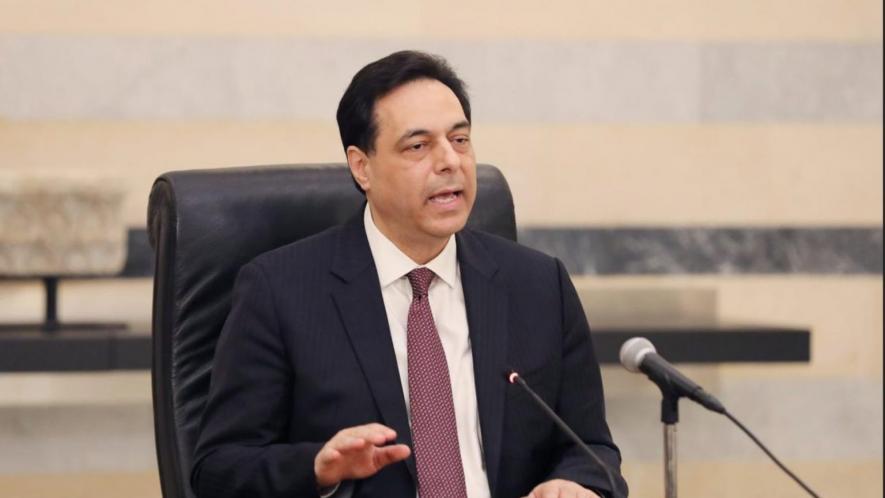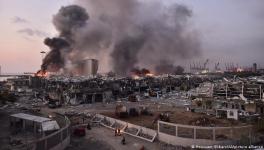Lebanese Prime Minister Hassan Diab Resigns Following Massive Protests

Lebanese prime minister Hassan Diab announced his resignation in an address to the country on Monday.
Lebanese prime minister Hassan Diab announced his resignation on August 10, Monday following massive protests over the past few days. Protesters had taken to the streets in large numbers against what they called the government’s negligence and lack of accountability following last Tuesday’s deadly chemical explosions at a storage warehouse near the port in the capital Beirut.
The blast killed close to 200 people, and injured more than 6000, while also causing damage worth billions of dollars, a heavy blow for an economy already facing bankruptcy.
Diab announced his resignation in an address to the country. Until recently, he had initially indicated he wanted to stay on in power. But he was forced to give in due to intense pressure from both within his government and the people on the street and civil society. He will continue as caretaker prime minister until a new government is formed.
The resignation of Diab was one of the key demands of the protests that intensified over the weekend. A few ministers of his cabinet had also announced that they would quit.
Some protesters, including a group of former retired army officers, on Saturday, stormed and temporarily occupied several important government ministry buildings, as well as buildings belonging to private financial institutions and banks. They were eventually forced out by military police and the Lebanese army.
The security forces resorted to using tear gas canisters and rubber coated metal bullets to suppress roughly 200-300 protesters that were occupying the buildings. The protesters responded to the violence by throwing stones and firecrackers at the security forces.
By night, around 250 protesters had suffered injuries at the hands of the security forces, according to the Lebanese Red Cross, with 63 needing hospitalization.
The protests that started on Saturday are the latest in a series of agitations that began in October last year against the worsening economic and political conditions in the country. Protesters have held government corruption and mismanagement to be responsible for the current situation.
The protests led to the resignation of former prime minister Saad Hariri. Diab subsequently came to power but his government was not able to address the demands of the protesters.
Courtesy: Peoples Dispatch
Get the latest reports & analysis with people's perspective on Protests, movements & deep analytical videos, discussions of the current affairs in your Telegram app. Subscribe to NewsClick's Telegram channel & get Real-Time updates on stories, as they get published on our website.
























